
Bilbao: The Heart of Basque Country
Bilbao is a city where tradition meets modernity. Nestled in the Basque Country of northern Spain, it offers a unique blend of rich history and cutting-edge architecture. The city is famous for the Guggenheim Museum, an impressive feat of contemporary design by architect Frank Gehry. This structure alone draws visitors from around the world, but Bilbao has much more to offer. Stroll through the Old Town, known as Casco Viejo, and you'll find narrow streets filled with bars serving pintxos, the Basque version of tapas. These small bites are a culinary delight, often featuring local ingredients like fresh seafood and cured meats. The area is also home to many shops, markets, and historic buildings, including the stunning Santiago Cathedral. Bilbao is surrounded by lush green hills, making it a great destination for nature lovers. The city's riverside promenade, the Ría de Bilbao, is perfect for a leisurely walk or a boat ride. Take a trip to the nearby beaches or hike in the surrounding mountains for a change of scenery. With its vibrant culture, delicious cuisine, and beautiful landscapes, Bilbao is a city that captivates the heart and soul.
Local tips in Bilbao
- Visit the Guggenheim Museum early in the morning to avoid crowds and have a more intimate experience with the art.
- Try pintxos in Casco Viejo during the afternoon when the bars are less crowded but still lively.
- Use the city's efficient public transport system to explore different neighborhoods and attractions.
- Take a day trip to the nearby coastal town of Getxo for beautiful beaches and scenic views.
- Learn a few basic phrases in Basque to enhance your interaction with locals, as many people in Bilbao speak both Spanish and Basque.
Neighbourhoods in Bilbao
Bilbao: The Heart of Basque Country
Bilbao is a city where tradition meets modernity. Nestled in the Basque Country of northern Spain, it offers a unique blend of rich history and cutting-edge architecture. The city is famous for the Guggenheim Museum, an impressive feat of contemporary design by architect Frank Gehry. This structure alone draws visitors from around the world, but Bilbao has much more to offer. Stroll through the Old Town, known as Casco Viejo, and you'll find narrow streets filled with bars serving pintxos, the Basque version of tapas. These small bites are a culinary delight, often featuring local ingredients like fresh seafood and cured meats. The area is also home to many shops, markets, and historic buildings, including the stunning Santiago Cathedral. Bilbao is surrounded by lush green hills, making it a great destination for nature lovers. The city's riverside promenade, the Ría de Bilbao, is perfect for a leisurely walk or a boat ride. Take a trip to the nearby beaches or hike in the surrounding mountains for a change of scenery. With its vibrant culture, delicious cuisine, and beautiful landscapes, Bilbao is a city that captivates the heart and soul.
When is the best time to go to Bilbao?
Iconic landmarks you can’t miss
Guggenheim Museum Bilbao
Discover the Guggenheim Museum Bilbao, an architectural masterpiece showcasing contemporary art in the heart of the Basque Country.
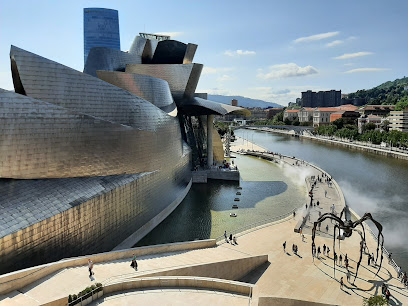
Plaza Nueva
Experience the vibrant atmosphere of Plaza Nueva, a historical landmark in Bilbao, rich in culture and flavor, perfect for soaking in local life.
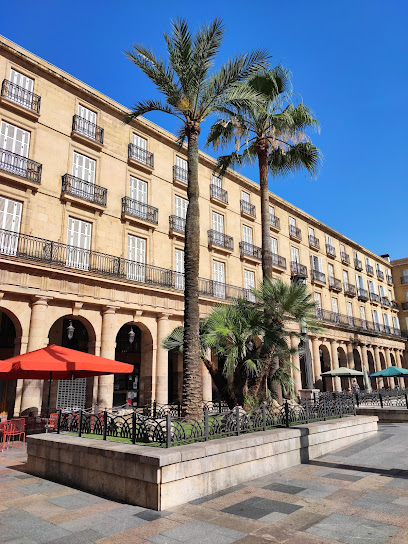
Azkuna Zentroa (Alhóndiga Bilbao)
Discover the vibrant cultural center of Azkuna Zentroa in Bilbao, where art, architecture, and community come alive in a stunning historical setting.
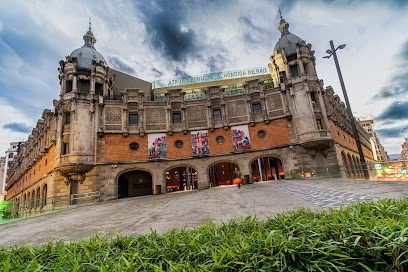
Artxanda viewpoint
Experience breathtaking panoramic views of Bilbao from the Artxanda viewpoint, a must-visit observation deck for every traveler.

Zubizuri
Discover the architectural beauty of Zubizuri, Bilbao's stunning pedestrian bridge offering breathtaking views and a vibrant atmosphere.
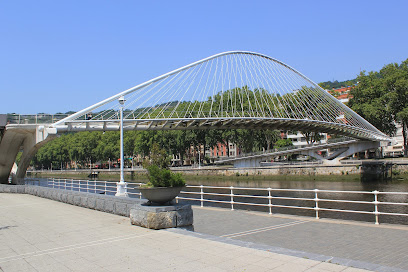
Teatro Arriaga
Experience the rich cultural heritage and stunning performances at Teatro Arriaga, a neo-baroque masterpiece in the heart of Bilbao, Spain.

Museum of Fine Arts of Bilbao
Explore the Museum of Fine Arts of Bilbao, where centuries of art come alive in a stunning architectural masterpiece in the heart of the Basque Country.
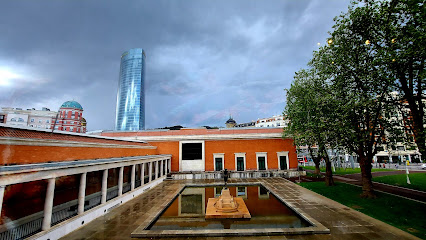
Bilboko Donejakue Katedrala
Discover the stunning Bilboko Donejakue Katedrala, a Gothic masterpiece in the heart of Bilbao, blending history, spirituality, and architectural beauty.
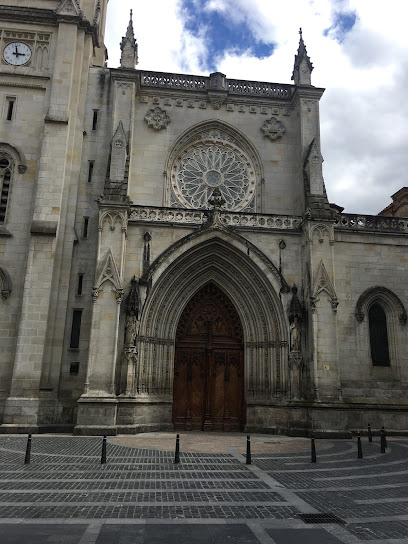
Puppy
Discover Puppy, the iconic floral sculpture by Jeff Koons in Bilbao, a vibrant blend of art and nature perfect for your travel memories.
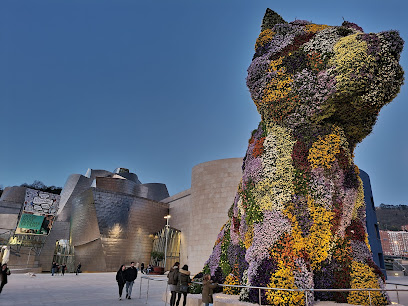
Palacio Euskalduna
Explore the unique architectural beauty and cultural vibrancy of Palacio Euskalduna, a premier event venue in the heart of Bilbao.
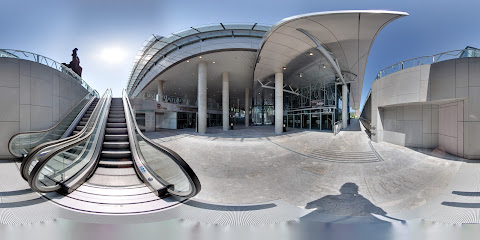
Begoñako Basilika
Discover Begoñako Basilika, a stunning neo-Gothic basilica in Bilbao offering breathtaking views and a serene atmosphere, perfect for spiritual reflection.
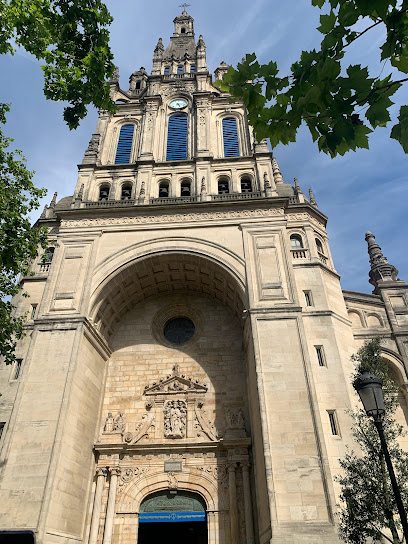
Funicular de Artxanda
Discover breathtaking views of Bilbao and the Basque landscape aboard the historic Funicular de Artxanda, a must-visit tourist attraction.
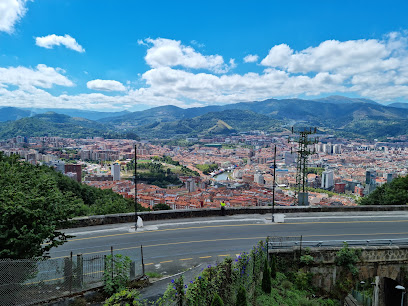
Turismo Bulegoa Bilbo Bizkaia
Explore Bilbao's vibrant culture and rich history with expert guidance from the Turismo Bulegoa Bilbo Bizkaia tourist information center.
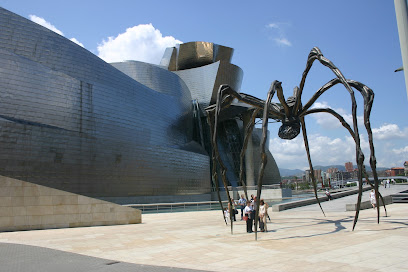
San Nikolas eliza
Discover the beauty and history of San Nikolas Eliza, a stunning Catholic church in Bilbao, showcasing exquisite architecture and a rich cultural heritage.

Bilboats
Discover the beauty of Bilbao from the water with Bilboats, the premier boat tour agency offering unforgettable experiences on the scenic waterways.
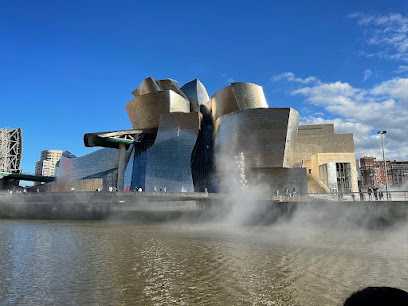
Unmissable attractions to see
Guggenheim Museum Bilbao
Discover the Guggenheim Museum Bilbao, where modern architecture meets contemporary art in the heart of the Basque Country.
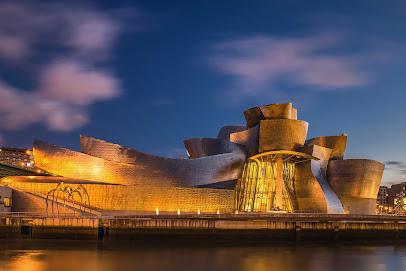
Vizcaya Bridge
Discover the breathtaking Vizcaya Bridge, an engineering marvel connecting Getxo and Portugalete, blending history with stunning views in the Basque Country.
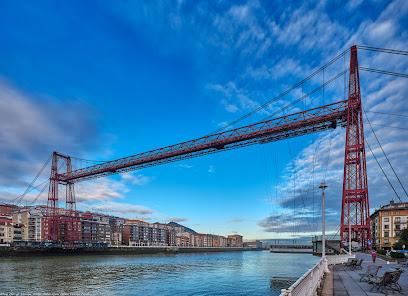
Estadio de San Mamés
Experience the passion of Spanish football at San Mamés Stadium, the iconic home of Athletic Club in Bilbao, where history meets modern design.
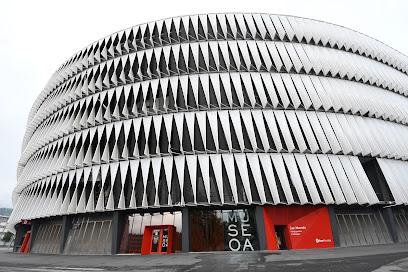
Erriberako merkatua
Explore Erriberako Merkatua in Bilbao for a taste of fresh local produce, delicious pintxos, and the vibrant spirit of Basque culinary culture.
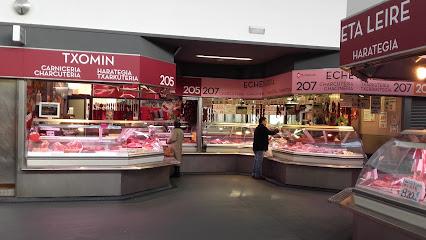
Azkuna Zentroa-Alhóndiga Bilbao
Explore Azkuna Zentroa-Alhóndiga, Bilbao's cultural center blending history, art, and modern leisure in a vibrant urban setting.
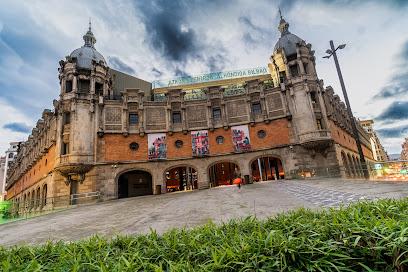
Artxanda viewpoint
Experience stunning panoramic views of Bilbao at the Artxanda Viewpoint, a must-visit observation deck in the Basque Country.
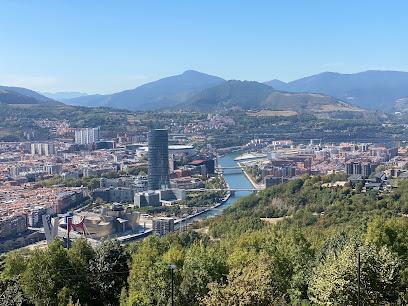
Parque Doña Casilda Iturrizar
Discover the serene beauty of Parque Doña Casilda Iturrizar, a lush city park in Bilbao filled with gardens, ponds, and vibrant local culture.
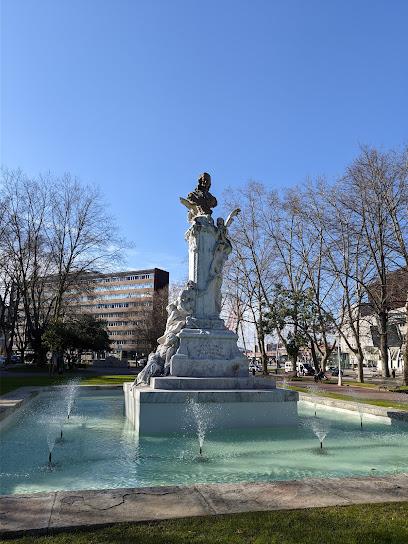
Zubizuri
Discover Zubizuri, Bilbao's stunning white bridge, a symbol of modern architecture and a gateway to the city's vibrant culture.
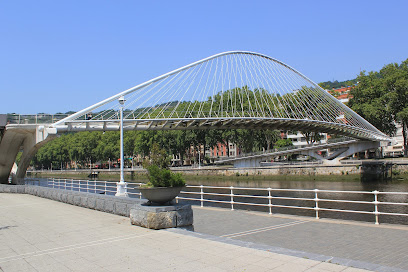
Arriaga Theater
Discover the Arriaga Theater in Bilbao, a stunning architectural marvel and hub of performing arts offering diverse shows and rich cultural experiences.
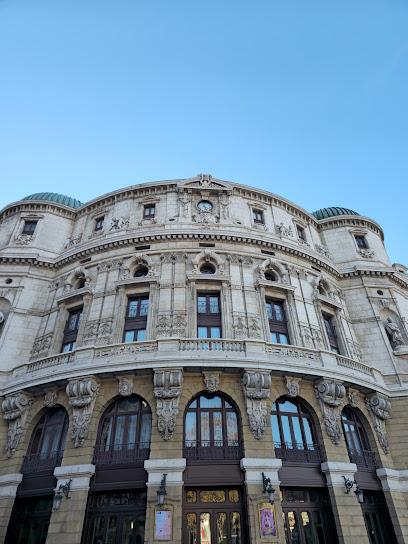
Teatro Arriaga
Discover the charm of Teatro Arriaga, a historic performing arts theater in Bilbao showcasing exceptional productions and a stunning architectural design.
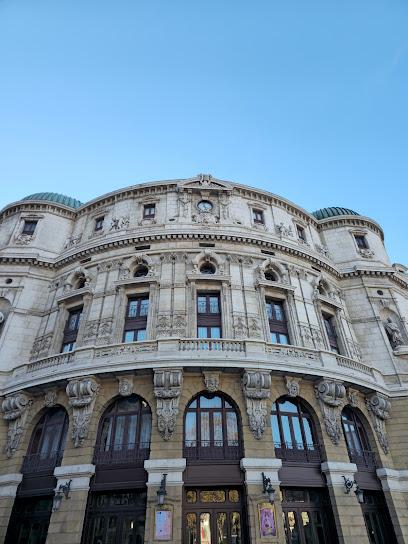
Museum of Fine Arts of Bilbao
Explore the Museum of Fine Arts of Bilbao, a treasure trove of art from medieval to contemporary masterpieces, set in the heart of a vibrant Basque city.
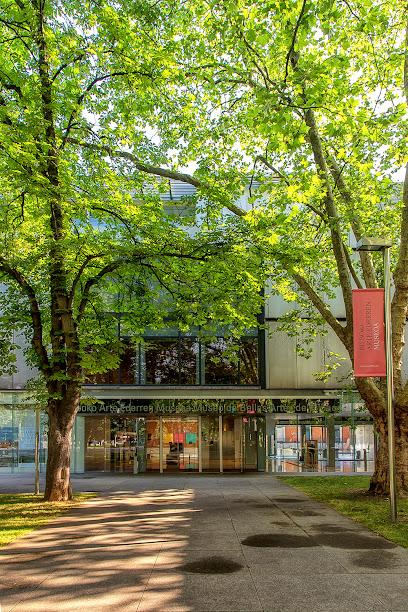
Bilboko Donejakue Katedrala
Experience the grandeur of Bilbao Cathedral, a Gothic masterpiece that is central to the city's history and culture, perfect for every traveler exploring Bilbao.
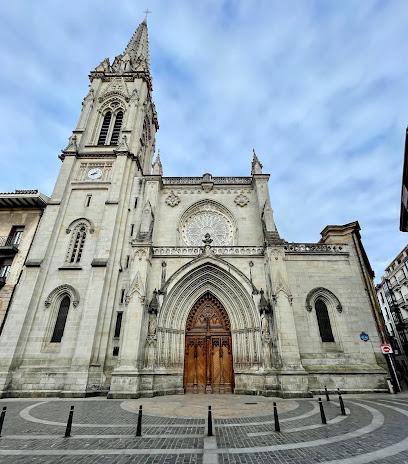
Puerto Viejo
Discover Puerto Viejo, Getxo's vibrant marina offering stunning views, delicious cuisine, and exciting water activities for every traveler.
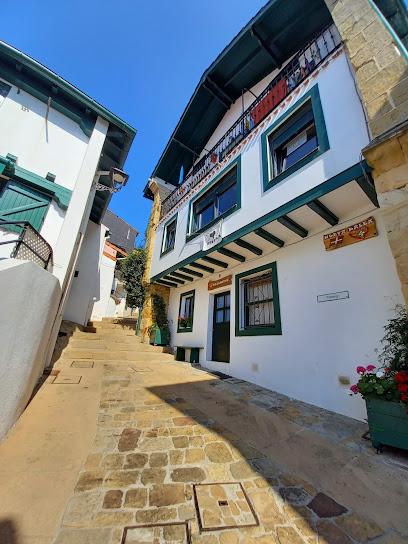
San Juan de Gaztelugatxe
Explore the breathtaking San Juan de Gaztelugatxe: a historic chapel on a stunning islet, offering panoramic views and rich legends in Biscay, Spain.

Puppy
Experience the charm of Puppy, a stunning floral sculpture in Bilbao, where art and nature beautifully intertwine amidst the city's vibrant culture.
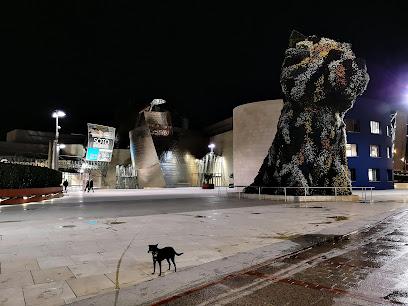
Essential places to dine
La Viña del Ensanche
Experience the best of Spanish cuisine at La Viña del Ensanche in Bilbao—home to exceptional tapas and traditional dishes in a lively atmosphere.
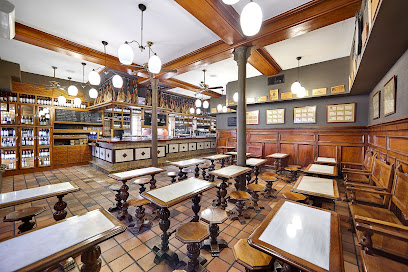
Gure Toki
Discover Gure Toki in Bilbao - an exquisite tapas bar blending tradition with innovation in every bite.
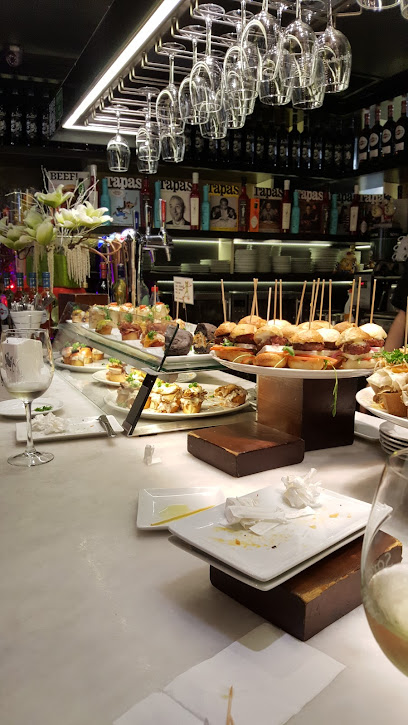
Víctor Montes jatetxea
Savor authentic Basque flavors at Víctor Montes Jatetxea - a must-visit restaurant in Bilbao for an unforgettable dining experience.
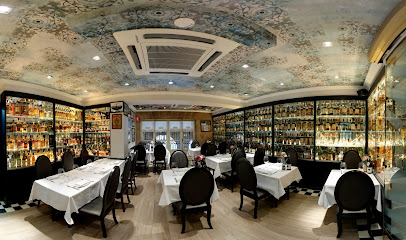
COPPOLA & SOLOMONK (NON STOP KITCHEN)
Indulge in authentic Italian flavors at Coppola & Solomonk in Bilbao's lively Abando district.
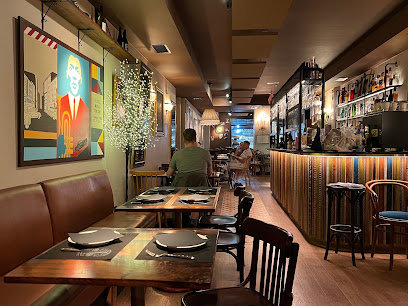
Rio-Oja Restaurant
Discover exquisite Basque cuisine at Rio-Oja Restaurant in Bilbao—where tradition meets flavor in every dish.
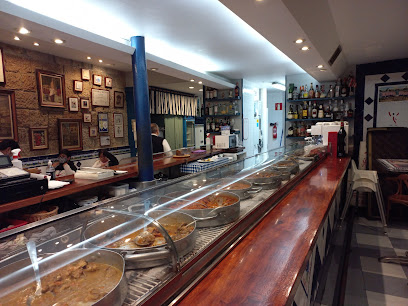
Bilbao Berria Ledesma
Experience exquisite Basque and fusion cuisine at Bilbao Berria Ledesma - a must-visit culinary destination in the heart of Bilbao.
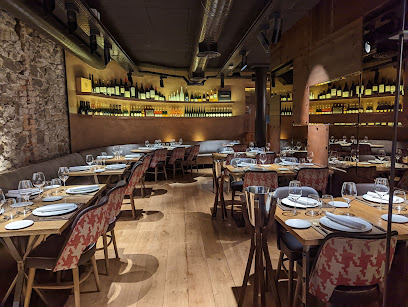
GOIZEKO IZARRA
Discover the essence of Basque cuisine at Goizeko Izarra in Bilbao – where tradition meets innovation in every dish.
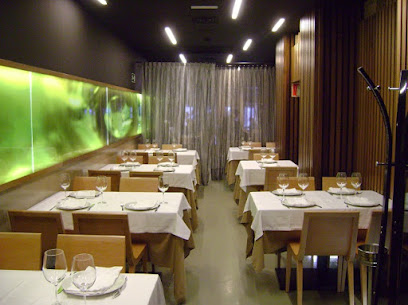
ETXANOBE
Experience exquisite Basque cuisine at Etxanobe, where tradition meets innovation in a stunning setting.
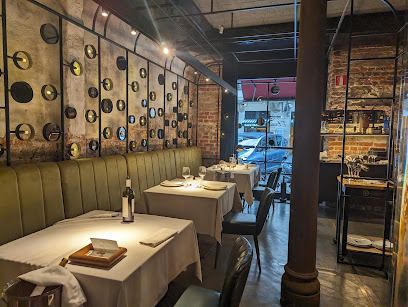
Restaurante Markina
Experience authentic Basque cuisine at Restaurante Markina in Bilbao – where tradition meets flavor in every dish.
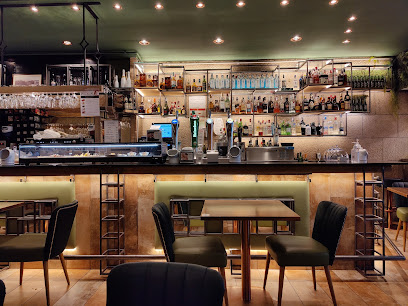
Casa Leotta - Ajuriaguerra
Experience authentic Italian cuisine at Casa Leotta in Bilbao - home to delicious pizzas and traditional dishes crafted with passion.
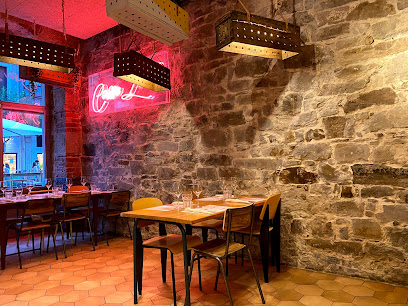
Restaurante Pentxo
Discover authentic Spanish cuisine at Restaurante Pentxo in Ibaiondo, Bilbao – where tradition meets flavor in every bite.
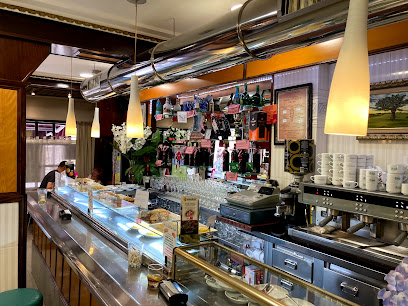
Ágape jatetxea
Experience authentic Mediterranean cuisine at Ágape Jatetxea in Bilbao - where every dish tells a story.
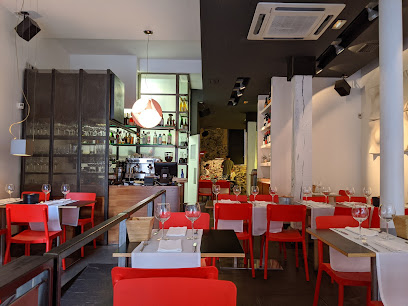
Baster
Experience authentic Basque flavors at Baster, Bilbao's beloved tapas bar offering delicious small plates and local beverages.
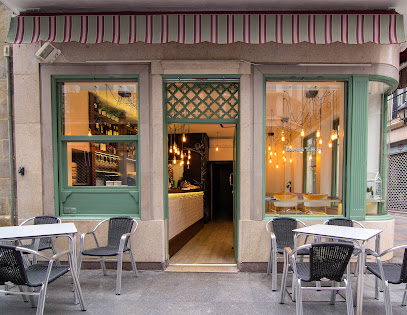
Gure Kabi jatetxea
Experience authentic Basque flavors at Gure Kabi Jatetxea, where tradition meets modern culinary artistry in the heart of Bilbao.
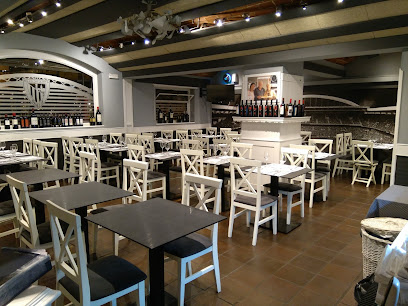
Kate Zaharra jatetxea
Experience authentic Basque cuisine at Kate Zaharra Jatetxea in Bilbao - where tradition meets modern culinary artistry.
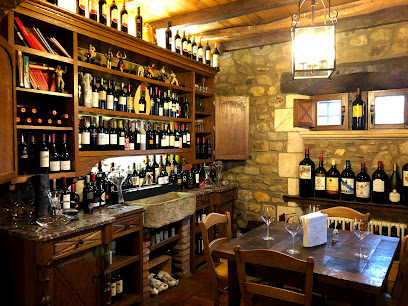
Markets, malls and hidden boutiques
Zubiarte merkataritza-zentroa
Discover the vibrant shopping and dining experience at Zubiarte, the premier shopping mall in Bilbao, Spain.
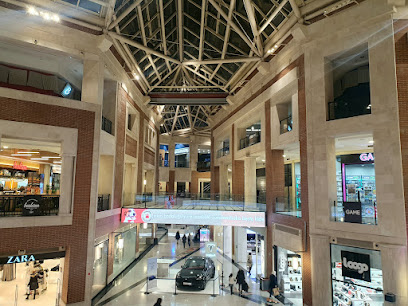
Blue Banana Brand - Bilbao
Explore Blue Banana Brand in Bilbao for trendy men's, women's, and youth apparel, featuring unique T-shirts and stylish clothing in a vibrant shopping atmosphere.
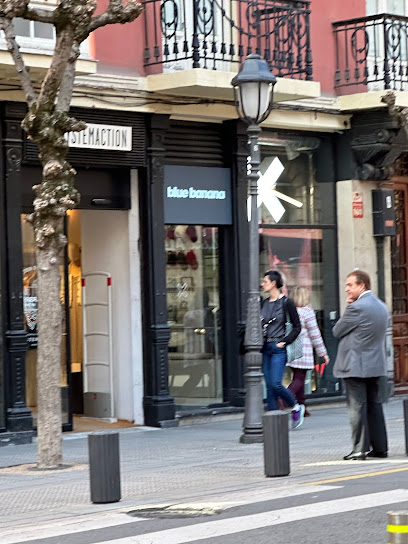
Sombreros Gorostiaga
Explore the unique charm of Sombreros Gorostiaga, a must-visit hat shop in Bilbao, where quality craftsmanship meets stylish design.
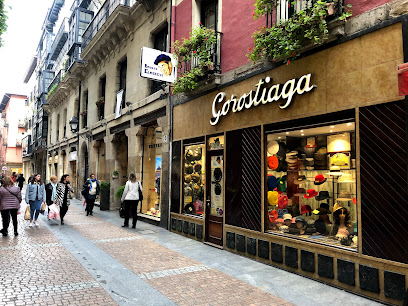
Valentina Brand Shop Bilbao
Explore the vibrant Valentina Brand Shop in Bilbao for unique fashion, stylish clothing, and stunning accessories that reflect the local spirit.
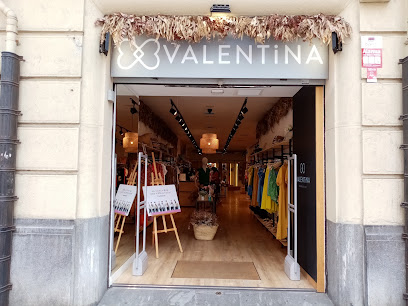
Natura
Explore the vibrant gift shop Natura in Bilbao, where you'll find unique souvenirs, stylish clothing, and local artisan treasures.
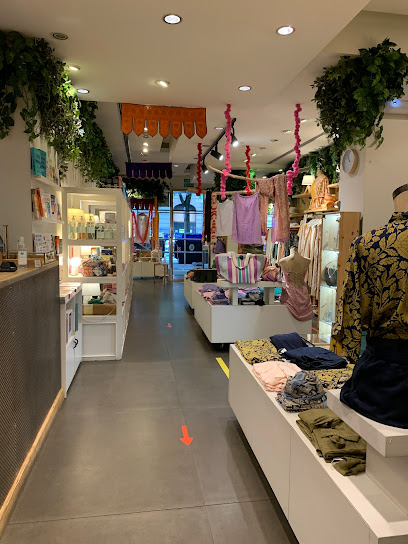
Desigual
Discover unique and vibrant fashion at Desigual in Bilbao, where creativity meets style for both men and women.
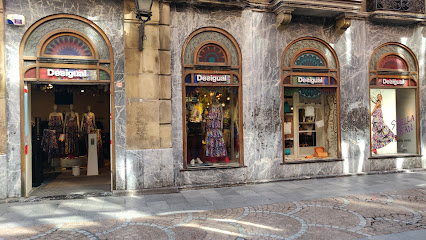
algo bonito Bilbao: Tienda Online Ropa Mujer
Discover stylish women's fashion at Algo Bonito in Bilbao, where contemporary trends meet local flair for the discerning shopper.
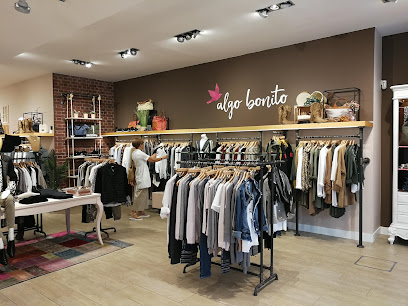
ALE-HOP
Explore ALE-HOP in Bilbao for unique gifts and souvenirs that celebrate the city's culture and creativity.
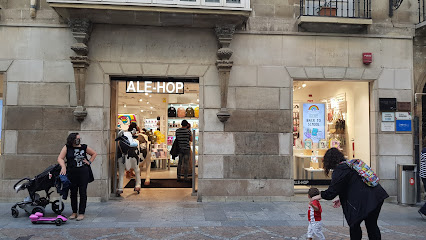
Supernova Vintage (antiguo Flamingos)
Explore unique vintage clothing treasures at Supernova Vintage, Bilbao's premier destination for sustainable fashion and stylish finds.
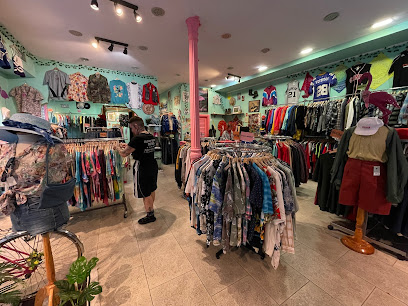
Brownie - Bilbao
Discover the latest trends in women's and youth fashion at Brownie, a stylish boutique in the heart of Bilbao.
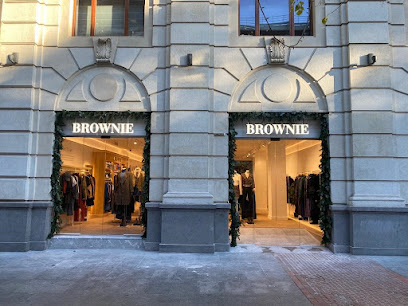
LOTUNE Bilbao Brands Store
Discover the charm of LOTUNE Bilbao, a craft store offering exquisite fashion accessories, unique jewelry, and playful toys crafted by local artisans.
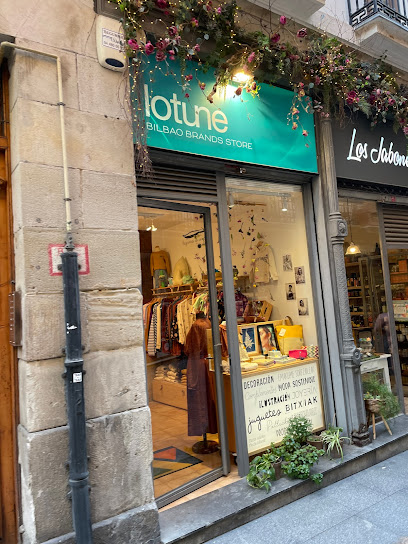
OLAÑETA Moda Bilbao. Tienda de ropa para mujer y hombre
Explore OLAÑETA Moda Bilbao for a unique blend of contemporary fashion and classic styles, perfect for every wardrobe.
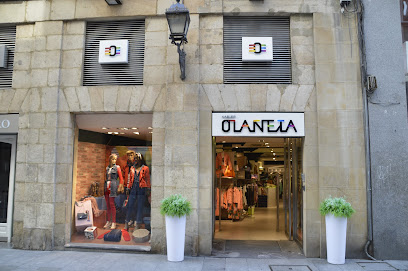
indi & cold
Explore unique fashion at Indi & Cold, a stylish dress store in the heart of Bilbao, offering contemporary designs with local flair.
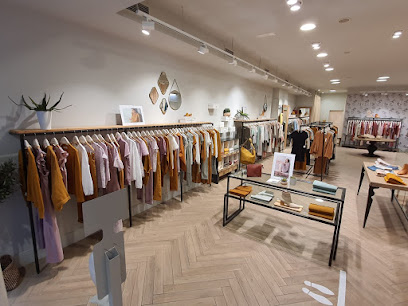
BELLAS ARTES GOYA LA BOUTIQUE
Explore artistic supplies and unique novelties at Bellas Artes Goya La Boutique in Bilbao, a haven for creativity and inspiration.
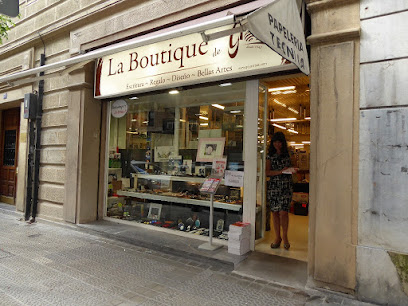
BELAZA GALLERY Bilbao
Explore Belaza Gallery in Bilbao for a unique blend of contemporary fashion, vintage style, and personalized shopping experiences.
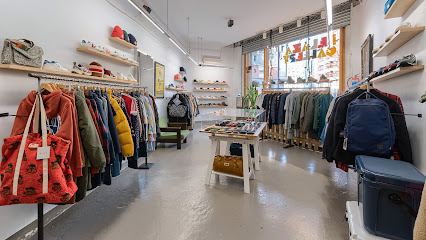
Essential bars & hidden hideouts
La Antigua Cigarrería
Discover La Antigua Cigarrería, an exceptional cocktail bar in Bilbao, where tradition meets innovation in a lively setting.
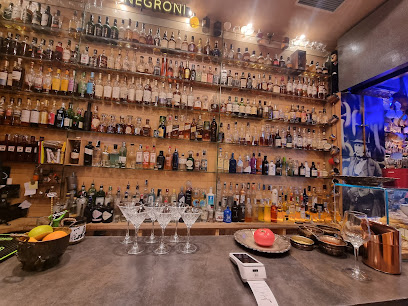
Sir Winston Churchill Pub
Discover the lively spirit of Bilbao at Sir Winston Churchill Pub, where exceptional cocktails and a vibrant atmosphere await every visitor.
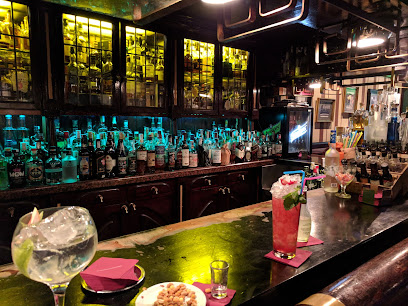
La Mula de Moscú
Discover La Mula de Moscú, Bilbao's vibrant cocktail bar blending innovative mixology with a lively pub atmosphere for an unforgettable night.
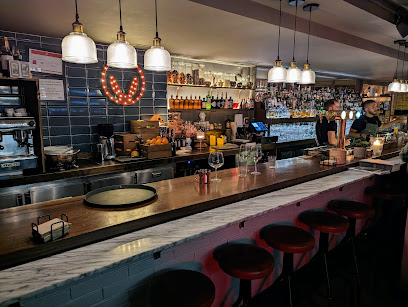
Singular
Discover the unique flavors of Bilbao at Singular Bar, a vibrant brewpub offering craft beers and delicious tapas in a lively setting.
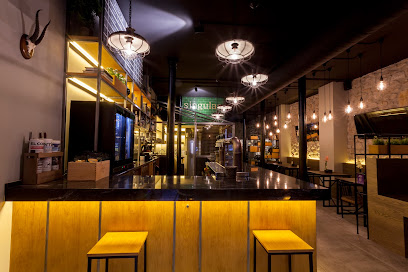
Pub El Alambique
Discover the lively ambiance of Pub El Alambique, where delicious food, refreshing drinks, and a vibrant atmosphere meet in the heart of Bilbao.
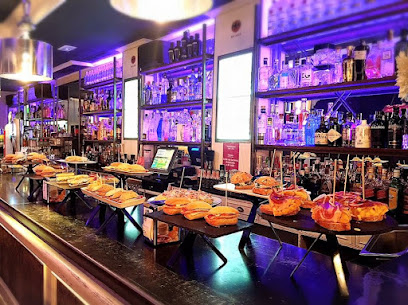
Stromboli taberna
Explore the lively Stromboli Taberna in Bilbao, where delicious tapas, refreshing drinks, and an inviting atmosphere await you.
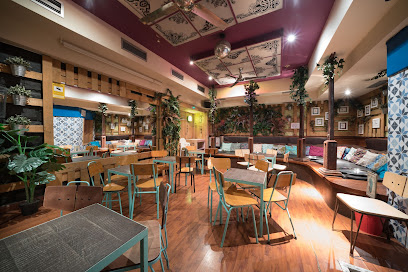
Residence kafetegia
Discover the vibrant nightlife of Bilbao at Residence Kafetegia, where expertly crafted cocktails and a lively atmosphere await.
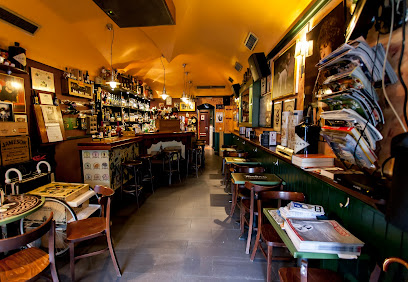
La Carbonería
Discover La Carbonería, a lively pub in the heart of Bilbao blending Irish charm with Basque culture for an unforgettable night out.
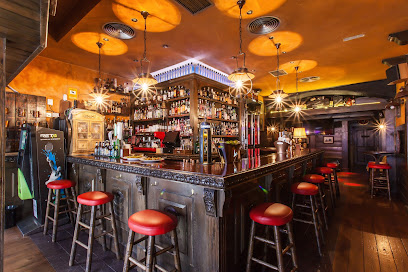
Penguin Bar
Discover the lively Penguin Bar in Bilbao, a haven for craft beer lovers and a social hub in the heart of Abando.
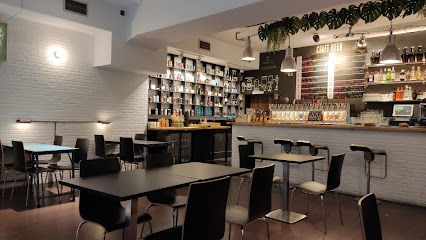
Café Kanpantxu
Discover the vibrant atmosphere and authentic Basque tapas at Café Kanpantxu, a must-visit bar in the heart of Bilbao.
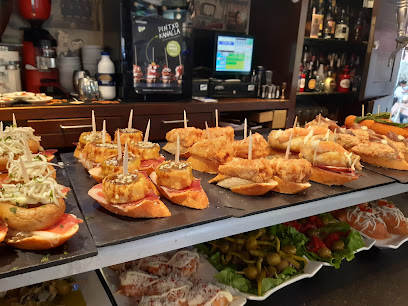
Gin Fizz Cocktail Bar
Discover the vibrant spirit of Bilbao at Gin Fizz Cocktail Bar, where expertly crafted cocktails and a welcoming atmosphere await.
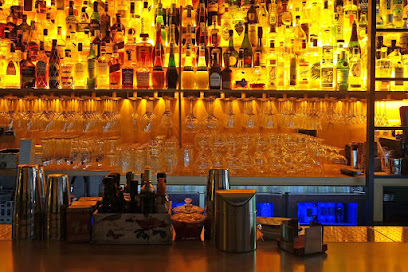
Abadía del Gin&Tonic
Discover the vibrant nightlife of Bilbao at Abadía del Gin&Tonic, where gin lovers unite in a stylish and inviting atmosphere.
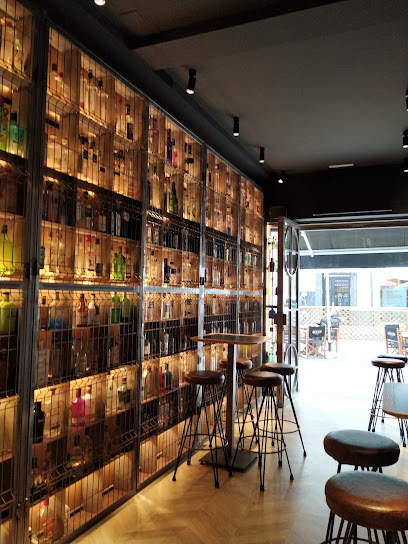
Azzurro Arcade Rock Pub
Experience the vibrant nightlife of Bilbao at Azzurro Arcade Rock Pub, where live music and local brews create unforgettable memories.
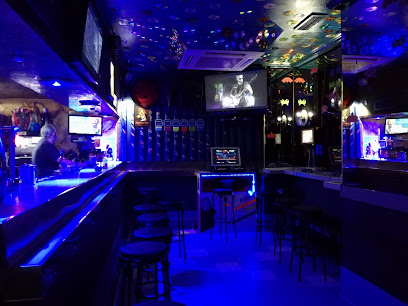
Sumerian Club
Discover the vibrant nightlife of Bilbao at Sumerian Club, where expertly crafted cocktails and a lively atmosphere await.
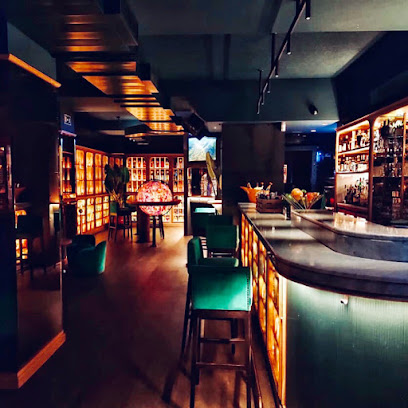
Local Phrases
-
- HelloKaixo
[kai-cho] - GoodbyeAgur
[a-goor] - YesBai
[bye] - NoEz
[ez] - Please/You're welcomeMesedez
[me-se-des] - Thank youEskerrik asko
[es-ke-rik as-ko] - Excuse me/SorryBarkatu
[bar-ka-tu] - How are you?Zer moduz?
[zer mo-duth] - Fine. And you?Ondo. Eta zu?
[on-do. eta zu] - Do you speak English?Ingelesez hitz egiten duzu?
[in-ge-les-eth hits e-gi-ten du-zu] - I don't understandEz dut ulertzen
[ez dut u-ler-tzen]
- HelloKaixo
-
- I'd like to see the menu, pleaseMenua ikusi nahi nuke, mesedez
[me-nu-a i-ku-si na-hi nu-ke, me-se-des] - I don't eat meatEz jaten artoa
[ez ja-ten ar-to-a] - Cheers!Txin-txin!
[chin-chin] - I would like to pay, pleaseOrdaindu nahi nuke, mesedez
[or-dain-du na-hi nu-ke, me-se-des]
- I'd like to see the menu, pleaseMenua ikusi nahi nuke, mesedez
-
- Help!Laguntza!
[la-gun-tza] - Go away!Joan zaitez!
[jo-an zai-tez] - Call the Police!Dei-tu poliziari!
[dei-tu po-li-zi-a-ri] - Call a doctor!Dei-tu medikuari!
[dei-tu me-di-ku-a-ri] - I'm lostNire bidea galdu dut
[ni-re bi-de-a gal-du dut] - I'm illGaixo nago
[ga-ix-o na-go]
- Help!Laguntza!
-
- I'd like to buy...Erosi nahi nuke...
[e-ro-si na-hi nu-ke] - I'm just lookingBakarrik begiratzen ari naiz
[ba-ka-rik be-gi-rat-zen a-ri na-iz] - How much is it?Zenbat balio du?
[zen-bat ba-lio du] - That's too expensiveHori oso garestia da
[ho-ri o-so ga-res-tia da] - Can you lower the price?Prezioa jaitsi dezakezu?
[pre-zi-o-a jai-tsi de-za-ke-zu]
- I'd like to buy...Erosi nahi nuke...
-
- What time is it?Ze ordu da?
[ze or-du da] - It's one o'clockBatetik gora da
[ba-te-tik go-ra da] - Half past (10)Ordu erdiak dira (hamar)
[or-du er-di-ak di-ra (ha-mar)] - MorningGoiza
[go-iza] - AfternoonArratsaldea
[ar-rat-sal-de-a] - EveningGaua
[ga-ua] - YesterdayAtzo
[at-zo] - TodayGaur
[gaur] - TomorrowBihar
[bi-har] - 1Bat
[bat] - 2Bi
[bi] - 3Hiru
[hi-ru] - 4Lau
[lau] - 5Bost
[bost] - 6Sei
[sei] - 7Zazpi
[zaz-pi] - 8Zortzi
[zor-tzi] - 9Bederatzi
[be-de-ra-tzi] - 10Hamar
[ha-mar]
- What time is it?Ze ordu da?
-
- Where's a/the...?Non dago...?
[non da-go] - What's the address?Zer da helbidea?
[zer da hel-bi-de-a] - Can you show me (on the map)?Erakuts dezakezu (mapan)?
[e-rakuts de-za-ke-zu] - When's the next (bus)?Noiz dator hurrengo (autobusa)?
[no-iz da-tor ur-ren-go au-to-bu-sa] - A ticket (to ....)Tiketa bat (....era)
[ti-ke-ta bat e-ra]
- Where's a/the...?Non dago...?
History of Bilbao
-
Bilbao was officially founded on June 15, 1300, by Diego López V de Haro, the Lord of Biscay. The founding charter was aimed at boosting commerce by granting privileges to merchants and encouraging settlement. The city’s strategic position along the Nervión River made it an ideal hub for trade, especially with northern Europe.
-
The 19th century marked a period of immense growth and industrialization for Bilbao. The discovery of iron ore in the surrounding areas led to a booming mining industry. The city's port became one of the most important in Spain, facilitating trade and the export of iron to countries like the United Kingdom. The rise of shipbuilding and steel industries further bolstered Bilbao’s economy.
-
During the Spanish Civil War (1936-1939), Bilbao was a stronghold for the Republican forces. The city endured significant bombing and was eventually captured by Franco's Nationalist forces in June 1937. The aftermath of the war led to a period of repression and economic hardship, but Bilbao managed to recover over the subsequent decades.
-
The opening of the Guggenheim Museum Bilbao in 1997 marked a dramatic shift in the city's identity. Designed by renowned architect Frank Gehry, the museum became an instant icon and a catalyst for urban regeneration. The 'Guggenheim Effect' spurred investments in infrastructure, revitalized the waterfront, and turned Bilbao into a major cultural destination.
-
In recent decades, Bilbao has undergone significant urban renewal. Projects such as the expansion of the metro system, designed by Norman Foster, and the redevelopment of old industrial areas into cultural and commercial spaces have transformed the city. Bilbao has gained recognition for its blend of historical heritage and modern architecture, making it a model for urban regeneration worldwide.
Bilbao Essentials
-
Bilbao is well-connected by air, rail, and road. The Bilbao Airport (BIO) serves both domestic and international flights and is located about 12 kilometers north of the city center. From the airport, you can take a taxi, bus, or rental car to reach the city. The airport bus (Bizkaibus A3247) operates every 20 minutes and takes around 20-30 minutes to reach the city center. Bilbao is also accessible by train, with the main train station, Estación de Abando, offering connections to major Spanish cities like Madrid and Barcelona. For road travel, the A-8 motorway links Bilbao with other parts of Spain and France.
-
Bilbao boasts a comprehensive public transportation system, including buses, trams, and a metro network. The Bilbao Metro is efficient and covers most of the city and surrounding areas. The tram system, operated by Euskotren, is another convenient way to get around central Bilbao. For shorter trips, you can use Bilbobus, the city's bus network. Taxis are available throughout the city, and ride-sharing services like Uber also operate in Bilbao. For a more flexible option, consider renting a bike or car.
-
The official currency in Bilbao, as in the rest of Spain, is the Euro (€). Credit and debit cards are widely accepted in hotels, restaurants, and shops. However, it's advisable to carry some cash for smaller establishments, local markets, and public transportation. ATMs are easily found throughout the city, and most accept international cards. Currency exchange services are available at the airport and in various locations around the city.
-
Bilbao is generally a safe city for tourists, but it's always wise to take standard precautions. Avoid walking alone late at night in poorly lit areas. The Old Town (Casco Viejo) is charming but can be crowded, so be mindful of pickpockets. Areas like San Francisco and Bilbao La Vieja have higher crime rates and are best avoided, especially after dark. Always keep an eye on your belongings in busy places like markets and tourist attractions.
-
In case of emergency, dial 112 for immediate assistance from police, fire, or medical services. The main hospitals in Bilbao include Hospital de Basurto and Hospital Universitario Cruces. Pharmacies are plentiful and can provide over-the-counter medications and basic medical advice. It's advisable to have travel insurance that covers medical emergencies. For minor health issues, local pharmacies (farmacias) are well-stocked and can offer guidance.
-
Fashion: Do dress smart-casual, as locals tend to dress well. Avoid overly casual or beachwear unless you're at the beach. Religion: Do respect local customs and traditions, especially in religious sites. Cover your shoulders and knees when entering churches. Public Transport: Do offer your seat to elderly passengers and avoid speaking loudly. Don't eat or drink on public transport. Greetings: Do greet people with a handshake. A light kiss on both cheeks is common among friends and acquaintances. Eating & Drinking: Do try local specialties like pintxos. Don't be afraid to ask for recommendations. Avoid tipping excessively; a small amount is usually sufficient.
-
To experience Bilbao like a local, visit the Mercado de la Ribera for fresh produce and local delicacies. Take a leisurely walk along the Nervión River and explore the unique architecture of the Guggenheim Museum. Enjoy a night out in the Casco Viejo, where you can hop from bar to bar sampling pintxos. Engage with locals; Basque people are known for their hospitality and are often eager to share their culture. Don't miss the opportunity to take a funicular ride to Mount Artxanda for panoramic views of the city.
Trending Landmark in Bilbao
Nearby Cities to Bilbao
-
Things To Do in Santander
-
Things To Do in San Sebastián
-
Things To Do in Pamplona
-
Things To Do in Burgos
-
Things To Do in Valladolid
-
Things To Do in Lourdes
-
Things To Do in Oviedo
-
Things To Do in Huesca
-
Things To Do in Zaragoza
-
Things To Do in Bordeaux
-
Things To Do in Segovia
-
Things To Do in Madrid
-
Things To Do in Avila
-
Things To Do in Salamanca
-
Things To Do in Lleida


















